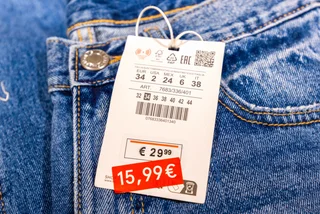Written by Markéta Dvořáková
For IWAP‘s The Bridge Magazine
I was very surprised when I realised how difficult it can be for non-Czech speaking people to do something I consider simple – paying the bills. In the Czech Republic, it is very common to pay personal bills right at the pošta (post office), and in this article, I will briefly explain how to do this.
You can pay all kinds of bills (gas, telephone, magazine subscriptions, etc.) at the post office through a Složenka, which is essentially a payment slip. Many invoices for regular service are sent coupled with a Složenka, and often there is no need to fill in anything; it comes already pre-filled. When you receive one of these slips, take it to any post office with the required amount of money. (There is a small fee for this service, minimum 12 Kč.) Make payments at the counter with the sign Peněžní služby.
In principle, by using a Složenka it is possible to pay whatever to whomever. There are several types of Složenka, but the two most frequently used are the “A“ and the “C.“
The “A“ is used for making a payment to a bank account. The appropriate columns must be completed with the following:
Name of the sender – odesílatel
Name of the recipient – adresa majitele účtu
Due amount in Kč (částka) both by digits and in words (slovy)
Bank account no.- č. bankovního účtu
Bank sort code – kód banky – this is 4-digit number separated by slash from bank account number
Konstatní symbol – this is not always needed; it will not be a mistake to put in 0308
Variabilní symbol – this expression as well as daňový doklad or faktura č. are often seen in Czech´s bills and the meaning is just invoice number
The “C” type is used for cash payments at the place of recipient´s address, sort of like a money order that gets delivered to the recipient´s address. Complete the slip with the address and name of both the recipient příjemce, adresát and sender odesílatel as well as with the amount částka, which you are paying. There are three separate parts and each has to be completed.
Both forms are available free at all post offices.
Paying via a Složenka is the most common method here, although often not the most comfortable choice because you must have enough cash, go to the post office, often wait in a long queue, and at the end talk to a clerk who does not (or is not willing to try to) understand you.
My suggestion is that you open a bank account in Czech currency with access to telephone or Internet banking. This is the most economical and sufficient way how to take care of your regular financial duties. All the major bank players in the Czech market offer this service and at least Internet banking is available in the English language. For non-Czech speaking people who decide to take this option, I recommend you visit an expat centre or the main bank branch or at least one larger than the local branches, where it is likely you´ll find an English speaking person to help you.
Once you are connected to an Internet banking service, you can conduct your finances directly from your house: check the balance, look at the passed transactions, make payment orders or standing payment orders, or use some additional services offered by your particular bank.
You will probably also want to ask your bank to issue you a platební karta (payment card), which is like a debit card that enables you to withdraw money from your current account as well as make payments in shops where the card is accepted. In many cases, you can also recharge the credit for your mobile phone card through selective money automates.
Lastly, paper checks are not commonly used for payments in the Czech Republic!
———
This article first appeared in The Bridge magazine October 2006 produced by The International Women´s Association of Prague (IWAP), an organization whose purpose is to welcome women to the Czech Republic, promote friendship among them, and acquaint them with the local culture. For more information, visit the IWAP website, www.volny.cz/iwap.












 Reading time: 3 minutes
Reading time: 3 minutes 
















